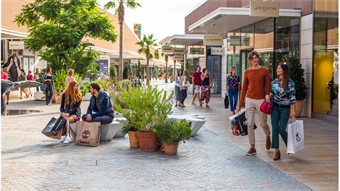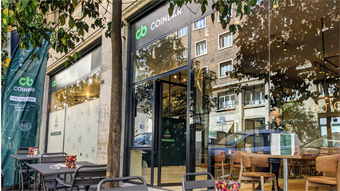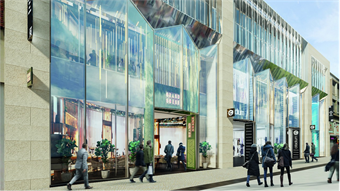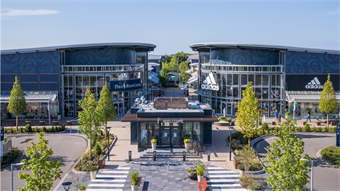Islington: investing in North London’s vibrant neighbourhood
- In Special report
- 15:00, 04 december 2019
- 5213 Views
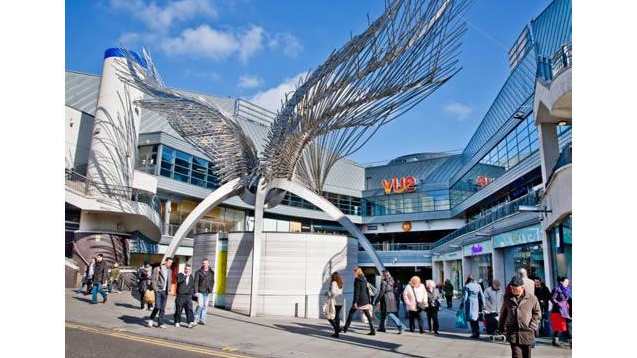
The lively north London borough of Islington has long attracted locals, Londoners and visitors to work, shop and socialise there. As CBRE Global Investors and Cain International take a larger stake in the local area with their mixed-use offerings, they favour taking complementary approaches to avoid unbalancing the local ecosystem.
If you’ve ever played the British version of the board game Monopoly, you may have owned one of the locations called Angel Islington or had to pay rent on it. Back in the 1930s, the licensees of the London-focused game used to meet in a local cafe in the area – they marked their meetings by adding the well-known district to the popular game when it launched in the UK over 80 years ago.
Islington has always been a diverse residential neighbourhood that’s home to politicians, professionals, people earning UK average incomes and students, as well as a bustling retail, leisure and commercial hub in central north London.
The area has very good public transport links, attractive and diverse architecture, and a real character that’s reflected in independent and eclectic retail such as antiques shops in Camden Passage and the lively daily Chapel Market, as well national retail and aspirational brands.
There’s a world-class arts scene including the Almeida Theatre, Sadler’s Wells, the King’s Head Theatre, one of London’s oldest pub theatres, and the O2 Academy within the Angel Central scheme. And there are three cinemas to choose from just ten minutes’ walk apart.
Islington is home to a lively office market, including Derwent London’s Angel Building with key tenants such as online travel company Expedia plus various tech-focused companies. There’s even Rocket Space, a tech incubator, next to Angel Underground station, and various well-known publishers and creative industry companies operating there.
Mixed use, diverse vibes
“Islington is a real mixture of hustle and bustle, quiet backstreets and peaceful Georgian squares, all very much in walking distance of mainline railway stations like Kings Cross and very short commuter distances from the City and the West End of London,” says Neil Barber, Leasing Director at Cain International. His company is the owner of the £400 million, 4.5-acre Islington Square mixed-use development that opened its doors to the public in October.
The area is also served by the established and growing mixed retail and leisure offerings at CBRE Global Investors-owned Angel Central, a destination hub for shoppers, cinema goers and people enjoying their daytime and evening leisure.
“During the week there is a strong community feel of local residents and people who come to the borough to work and study,” says Laura Wilson-Brown, Head of Asset Management UK at CBRE Global Investors. “At all times, Islington is a magnate for Londoners who want to enjoy the diverse arts, leisure, restaurants and bars, and of course retail offerings that this London borough has to offer.”
A local town centre offering
London’s scale, population size and diversity have always supported thriving local town centres and smaller village locations across the city’s 32 boroughs, including the London Borough of Islington. Given its cultural heritage and socioeconomic success, Islington continues to appeal to a mixed demographic.
“There’s a certain brand around Islington and we’re increasingly using the Islington branding around Angel Central to spark that connection and awareness of the area,” explains Wilson-Brown.
There’s no shortage of leisure and retail experiences available to Greater London’s nine million residents and many millions of visitors that flock to the city each year. While local experiences are not necessarily taking the shine off city centre high streets and out-of-town offerings, many neighbourhood experiences have the footfall to maintain and even grow their popularity.
Everyone is becoming time-poor and increasingly discerning about how they spend their time, explains Wilson-Brown. “They don’t want to spend their time travelling to locations that may be hectic and therefore may not be a quality experience compared with convenient, local locations that provide people with very good variety,” she says. “As well as convenience, people are increasingly motivated by buying locally and being part of a community feel.”
Complementary offerings
Nearly 40 million people a year enter and leave Islington’s two Underground stations – Angel and Highbury & Islington – and many more use other forms of train and bus transport, and of course the streets throng with pedestrians and cyclists.
The owners of Angel Central and Islington Square are conscious of presenting complementary offerings, not only to each other’s destination but to support the balance of independent local retailers, bars, cafes, restaurants and entertainment venues.
“We did a Revo joint study tour with Angel Central last year and took people to both centres on the same day – and there’s no competition really,” says Barber. “Tenants and brands may look at Angel Central and Islington Square, but each of the schemes is different – and importantly – complementary.”
The conversations between both owners and the wider retail and leisure communities underscore the need to avoid creating an imbalance in the local area. “We are quite conscious not to take away much from the wider network of independents in Islington,” says Wilson-Brown.
This article examines how Angel Central and Islington Square are taking complementary approaches to mixed-use development – and how they are broadening out their offerings to locals and visitors alike.
Angel Central: a social, open space
A couple of minutes’ walk from Angel Underground station, at the southern end of Upper Street, Islington’s well-established high street, sits Angel Central.
“Angel Central is somewhere we can draw people in to spend leisure time. It’s a physical space with a central piazza, which is for community use where people can hang out without having to transact,” explains CBRE Global Investors’ Wilson-Brown. “That freedom to spend time in the space helps to build brand loyalty. This is moving away from the definition of a shopping centre to a space that you want to be in to spend your leisure time."
Angel Central recorded a footfall of 10 million visitors in the calendar year 2018. And firmly anchoring the retail and leisure hub as a local destination, Wilson-Brown says that an average customer visits Angel Central 59 times a year.
The community and leisure atmosphere, like in many comparable venues, creates conversations between visitors, in person and online. “When customers post images on Instagram and other social media of themselves relaxing and spending leisure time then this is great publicity, raising awareness about the Angel Central brand and experience,” she says.
Promoting an 18-hour town concept
Wilson-Brown says that “we definitely make a lot of our leisure offer in our marketing. We feel that we have an established leisure element in Angel Central with the 02 Academy and the 10-screen Vue cinema complex, which has committed to a long lease, and the gym operator Frame will be launching soon.”
“We provide an all-day and all-night offer that benefits retail and also the wider economy in Islington, which we also benefit from,” she adds.
Creating the optimum tenant mix
Angel Central is pitched as the national retail hub of Islington with cornerstone retail brands such as H&M and Uniqlo that appeal to broad demographic groups. Other established retailers include Gap, MUJI and L’Occitane among others.
Uniqlo’s new bespoke 15,500 square feet store – 5,300 square feet on the ground floor and 10,200 square feet in the basement level – flows over two floors, making the new arrival retailer a key part of the Angel Central’s £11 million pound transformation programme.
“In leisure, we are enhancing the offer with gym operator Frame – this was a strategic decision to include the gym to broaden appeal and attract visitors,” Wilson-Brown says.
“F&B will be the next phase that we’ll look at in 2020,” she says. “Once we have embedded national retail more and leisure has been enhanced, one of the upper-floor lettings will be for F&B and leisure combined in a competitive socialising offering.”
Additional investment in Angel Central
Angel Central’s £11 million investment has transformed the basement from a pre-existing carpark into new retail and leisure space, helping to boost the 170,000 square feet space of the shopping and leisure destination.
While property and land are in short supply in the local area, Wilson-Brown says that CBRE Global Investors will seek to acquire further assets going forward.
“Since we bought Angel Central in 2015, we have bought two add-on assets in 14 and 16 Upper Street, connected to the main site, which cost about £7 million,” she explains. “We would look to enhance that ownership along Upper Street and we see ourselves as a long-term holder, so expanding our gateway into Angel Central is part of our long-term vision.”


